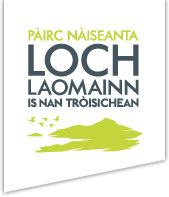
How can we enable a greener economy and more sustainable living?
With just over a week to go to submit your thoughts on our Draft National Park Partnership Plan, we are asking for your views on how we can make our rural economy greener and help communities in the National Park to live more sustainably.
The way we live and work in the National Park is changing as we all respond and adapt to the nature and climate crises – and as we start to recover from the economic and social impacts of the Covid-19 pandemic.
As Scotland moves towards becoming a Net Zero Nation, our economy must adapt. We also need to consider how development and investment in infrastructure can support this shift.
Together we have the opportunity to create a vibrant green economy and a new way of living that enables the National Park’s communities to flourish in harmony with nature and climate.
Our Draft National Park Partnership Plan proposes aims and objectives under three themes to help us grasp this opportunity.
Transitioning to a Greener Rural Economy
A green economy means more than money. It’s about connecting and empowering our local communities to act in ways that improve wellbeing and social equality while safeguarding our natural environment.
Transitioning to a greener economy will mean supporting a rapid transition of our business sector towards becoming net zero, as well as securing increased investment in our land-based sector, to help mitigate and adapt against the impacts of climate change and help restore nature. This move will also provide a raft of opportunities, such as growth in green skills and jobs to help make this shift and an opportunity for businesses to capitalise on the market advantage of restored nature and operating in a net zero place.
Living Well Locally
Living and working closer to home will also reduce our carbon emissions and help residents to become less dependent on driving to other areas for work, leisure or to access services to help them live their lives.
Right now, the National Park’s population is getting older, and young people are moving away as they cannot find work or affordable homes. It’s going to take a collective effort to create the jobs, homes and transport services our young people need if they’re to build a future here.
We also need to support communities to adapt to the changing climate. Building on existing examples of communities taking action to develop their resilience and using Local Place Plans can help this transition.
Harnessing Development and Infrastructure Investment
Being a National Park doesn’t mean nothing should ever change. It means any development should benefit nature and climate and help strengthen our rural communities.
Significant investment will be required within the National Park to deliver outcomes for climate, nature, people and communities. This includes investment in the natural capital held within the National Park’s vast landscapes, investment in our towns and villages to meet development needs of the rural communities and economy – and to support more local living – as well as investing in infrastructure to help ensure the National Park is more resilient to the effects of climate change.
It will be important to secure the right sorts of development and infrastructure investment to realise this and ensure we harness the benefits that development can bring, including for climate and nature.
Enabling a greener economy and more sustainable living will make us all wealthier – in every sense of the word – and it will take all of us to make this shift. We want to hear your views on how your community can grasp this opportunity or what role you can play in helping us to make this change.
Click on the links above or visit our Commonplace consultation website to find out more about each section, let us know what you think and what you can do to help.
Delivery partners can also use our Full Survey to let us know how you can contribute to objectives to help enable a greener economy and more sustainable living.
The closing date for responses is Wednesday 19th July 2023.

